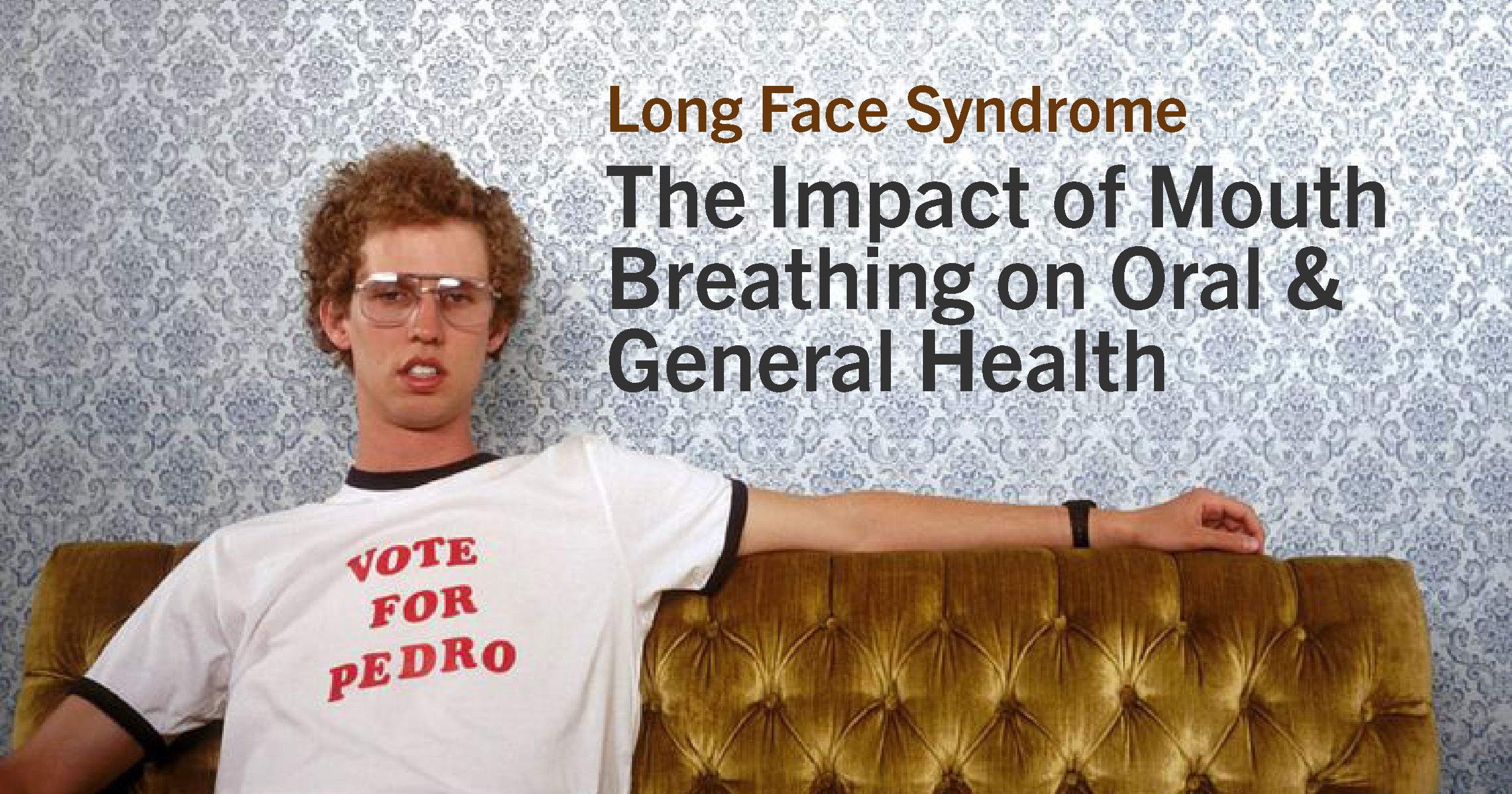Listen to the podcast here.
Did you know that solely breathing through your mouth during the day and/or at night can have significant impacts on your oral and general health? We are meant to be nose-breathers. Nose breathing gives you the ideal exchange of oxygen and carbon dioxide Breathing through our noses increases oxygen in the blood by 10-18%! Mouth breathing disrupts the exchange and decreases oxygen absorption. This can lead to over breathing because you need to breathe more frequently in order to replenish the oxygen that is being lost. Breathing through the nose also filters air and removes 98-99% of allergens, bacteria and viruses from the air. When breathing through the mouth, the air is not filtered and more harmful.
What is Long Face Syndrome?
Mouth Breathing can also cause the development of a long face, otherwise known as “Long Face Syndrome”.
Signs of Long Face Syndrome include:
- A long face
- Vacant stare
- Open mouth (mouth breathing)
- Tongue rests at the bottom of the mouth
- Dark circles under the eyes
- Shortened upper lip
- Flaccid lips
Children that suffer from Long Face Syndrome get 10-18% less oxygen to the brain. When the tongue position is down and forward it creates malocclusions and teeth crowding. The tongue positions and mouth breathing influences changes in facial structure and growth over time.
Other symptoms of mouth breathing:
- Bed wetting
- Snoring
- Attention or behavioral issues
The Importance of Intervention
Intervening early is crucial, because the adult facial skeleton is already 60% mature at age 4, and 90% by age 12. Recognizing symptoms of mouth breathing at an early age, also let the child receive benefits from nasal breathing.
Nasal breathing improves blood-oxygen level, filtration and restorative sleep which is key for child growth and development. When children do not have the benefit of restoration sleep it can result in problems in school, behavioral issues, poor brain development, and irritability.
If you are concerned with your child’s breathing, facial development, or sleep and believe it may be linked to mouth breathing or other malocclusions visit the sites below for more information or to schedule an appointment:

